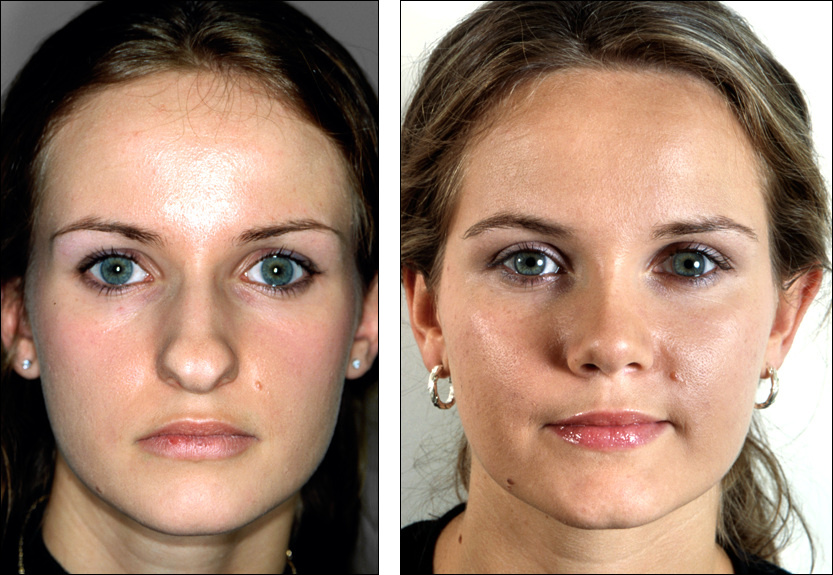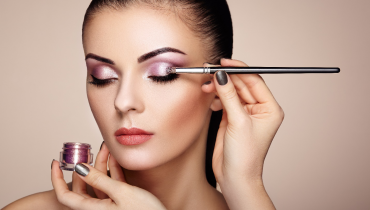
Rhinoplasty
Image Source- Pinterest.com
Life-Saving About Rhinoplasty
Rhinoplasty is the surgical process of correcting nose related deformities that could natural or accidental due to injuries. It is of two types.
Open rhinoplasty: The surgery is performed on the outer skin. The surgeon intelligently makes an incision to cut the skin on nose and then reshapes the nose by lifting the skin. It is easier said than done. The open rhinoplasty leaves a very small incision mark on nose.
Closed rhinoplasty: In closed surgery, the incision mark is made inside the nose. It is a very difficult process but advantageous for patients. Closed rhinoplasty leaves no marks on face.
Benefits of rhinoplasty
• Improved breathing
• Restructuring broken nose
• Easing sinus problem
• Correct birth defects
• Reduce snoring
• Improve appearance
• Boost confidence
How to prepare for rhinoplasty?
The process of rhinoplasty might take a few hours to complete but preparations for the surgery starts months before the surgical process. You have to sit with your surgeon a couple of times to chalk out a detailed plan for successful surgery. Photographs of shape, size, dimension and position of your nose will be taken to compare it with the nose post-surgery.
Inspired by celebrities like Kate Middleton, Britney Spears, Michael Jackson and Tom Cruise, people rush to cosmetic surgeons for nose correction. But little do they know that Rhinoplasty works well only on certain conditions like:
• A nose that doesn’t suit to facial features
• A bump on the bridge
• Very wide nose
• Nasal tip seems drooped or protruding
• Bulbous tip
• Excessively flared or pinched nostrils
• Crooked nose
• Injury
• Structural irregularities
Recovery in rhinoplasty
You will feel puffiness around nose area and eyes after surgery. The operated area could be swollen and you could feel mild pain due to swelling. But the swelling and pain will subside after some time.
• Your surgeon would want you to keep your head in elevated position even during sleeping. Also, you will be prescribed some medicines to control swelling and pain.
• Take diet suggested by the surgeon and avoid doing things like taking stress. It is only with good diet and complete rest that can prevent you from corrective surgery.
While complete recovery will be visible in six to twelve months of surgery, you can expect small results within a fortnight of the surgery. Final result will depend on factors like your healing ability, age and skin type.
Rhinoplasty complications & risk factors
• Swelling around the operated area
• Mild pain due to surgical incision and stiches
• Discoloration of the skin around new nose
• Numbness
• Slow healing due to smoking and other bad habits
Note: Patients need not worrying about risk factors like nerve damage and bleeding as it happens only in rare cases. Also, the doctors and hospitals are well prepared to handle emergency situations.
Why a nose job goes wrong?
A correction surgery is needed after every wrong nose surgery. While things could go wrong due to medical negligence but most of the time it is due to unsatisfactory correction. Studies of cases that went wrong reveal the bitter truth about rhinoplasty. Patients hold high expectations from surgeons and latter make mistakes like removing more cartilage than needed from the nose.
Let’s discuss some myths about nose correction
1. There’s nothing like nose shopping
You are wrong; if you think that you can shop around for a beautiful nose and wear it on your face with surgery.
Many people go to surgeons expecting to see cataloguesof a variety of noses but they are disappointed.In reality,a surgeon can only work on your nose and not replace it with a new piece.
Nevertheless, he can show how a surgery would change your nose or modify it to suit your face better.
The choice is yours. Say no, if you don’t like the modification.
2. Anybody can do a nose job
In rhinoplasty, India is ranked 4th in the world and a large number of surgeries are corrective in nature. Indian cosmetologists are redoing the wrong job of others. This fact proves that not every surgeon is fit for nose job and also that Indian surgeons are more reliable than others.
3. Nose job includes use of implant
While surgeons aren’t averting to using alloplastic for nose correction but it is used in rare conditions. The general way is to use cartilage harvested from the septum or ear. Using fillers for nose correction have limitations and they are temporary measures. Also, the long-term effects of fillers on skin aren’t known.
India has championed the cause of corrective rhinoplasty. Therefore, India has captured approximately 12% of the rhinoplasty market of the world. And this number is growing with each passing day.
Rhinoplasty in India is cheaper than it is in other countries. It is approximately 70% cheaper than USA. Thus, The rough estimate of nose job in India is approximately 2000 USD. In Indian currency, it is starts at 1 lac.
Here’re the reasons for India becoming a favorite destination for nose correction
1. Fluent English-speaking surgeons, paramedics, ground staff, chemists and hotel service is a big reason for people from across the globe choosing India for medial tourism. They come for nose job and enjoy the delicacies, history, culture and traditions of India during their stay.
2. No wait list. India is one of the few countries with largest concentration of public and private healthcare facilities. Also, India boasts of highly qualified and experienced cosmetic surgeons and paramedics. There is no waiting for surgery in India.
3. Medical treatment costs in India are so low that people can easily include nose jobs in their personal and business trips. Thus, Approximately 60% of Indian cosmetic surgery market is dominate by rhinoplasty and a large number of patients are foreign citizens visiting India for vacations.
Conclusion
Corrective rhinoplasty is second surgery done to correct the wrongdoings of first surgical process. But the corrective surgery can prevent and the expenses on second surgical treatment save, if patients take consultations as opportunities to ask questions about the procedure, benefits and potential risk factors. So, Preparation is the only key to success in rhinoplasty.





